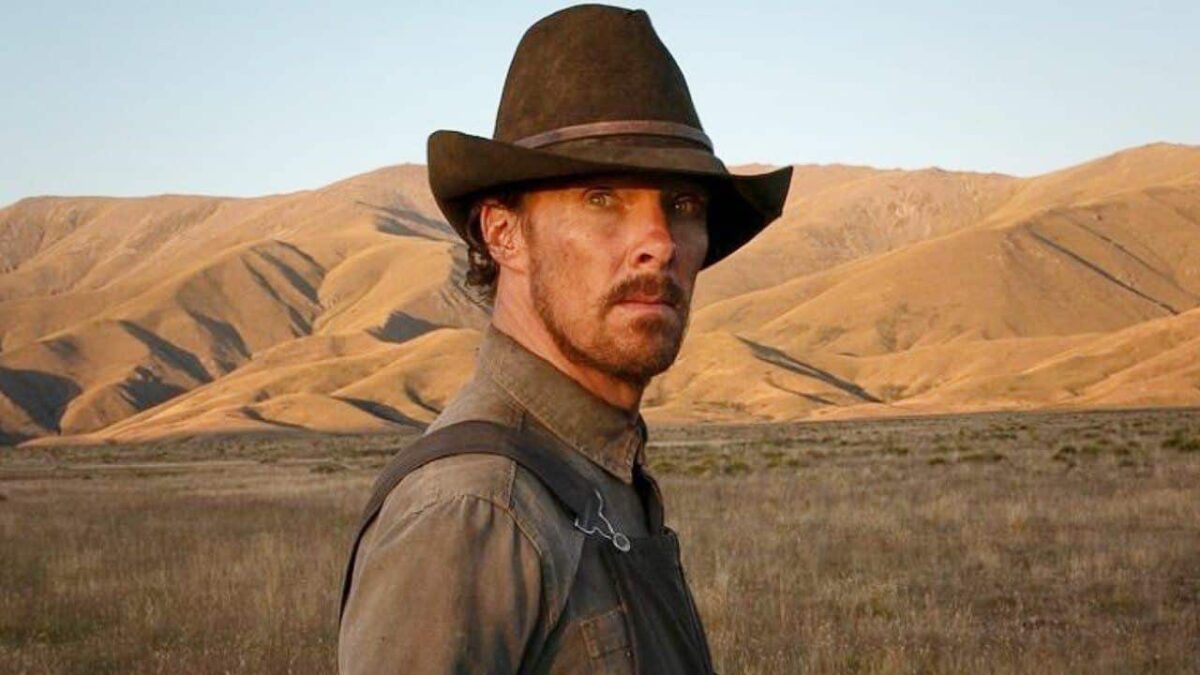
Let’s address the controversy first. The choice of Benedict Cumberbatch to play the lead gay role in Jane Campion’s deceptively submerged The Power of the Dog led to further angst about whether it is OK to cast straight actors in gay roles. Let’s just say that Queerguru believes in equal opportunity but until we get there, and we are far from it, then positive discrimination is where we are at. We want more LGBTQ+ content made by and for our community and being real, equal pay for equal work. Women, trans people, and people of colour get paid less for jobs they have to work harder to get. Hollywood, a source of both cultural change and good jobs in front and behind the camera, does not get a free pass in the struggle.
Now, jump off our high horse onto the stunning wide-open plains of Campion’s beautifully set Western and its slowly simmering desperation. Phil Burbank (Benedict Cumberbatch) and George Burbank (Jesse Plemons) are two brothers, taught manhood by the long-dead Bronco Henry, rubbing uneasily against each other due to some unspoken rift. Phil’s bitter brooding creates a toxic atmosphere of macho expectations while George seeks out a sop to his loneliness by marrying fragile widow Rose (Kirsten Dunst). Rose’s fey son Peter (Kodi Smit-McPhee) seems to be everything Phil visibly detests. He taunts the boy’s speech, body language and “Nancy” habits. The unwelcome atmosphere drives Rose deep into the bottle, and Peter has to watch as the booze starts to drown her.
 Change ripples out from Peter’s discovery of Phil’s stash of male erotica. The masculine camouflage is torn. From underneath it Phil starts to reach out to Peter and offers to train him in the masculine traits and habits of a rancher and cowboy. Peter embraces the opportunity to spend time with him.
Change ripples out from Peter’s discovery of Phil’s stash of male erotica. The masculine camouflage is torn. From underneath it Phil starts to reach out to Peter and offers to train him in the masculine traits and habits of a rancher and cowboy. Peter embraces the opportunity to spend time with him.
The majority of the movie seems deeply dissatisfying. Emotions are so repressed, so hidden below the surface that motives become invisible. When Rose turns to drink there is a connection to her husband’s suicide as an alcoholic. But it is unvoiced. When Phil switches his attitude to Peter there is a suggestion that he sees something in Peter that Bronco Henry saw in Phil when he took him under his tutelage. But the change seems overly abrupt because it is left to the audience to devise this conclusion. Phil and George’s ongoing sibling division is presented without exposition or explanation, just as an artifact of their personalities.
Only at the end, and this is a tribute to Campion, do the seeming flaws of the movie get re-evaluated. We are going to leave out the spoilers but never has the ending of a movie sent us back to re-examine every scene in quite the same way. The movie initially appears to be about masculinity, by the end it gets much more specific. It focuses on what strength really is, who appears to have it, who really has it, and how it is used whether for good or bad. The movie literally shows many different ways to skin an animal on the ranch, and metaphorically plays out the many different ways people have to get what they want.
Gorgeous cinematography bathes the star cast. Fine performance from everyone, including an eye-opener from Kirsten Dunst, makes each role seem central to the story. Pay attention to the exquisite details though, not just because they are flawlessly presented, but because by the end it turns out that, when so much is unsaid, they are as important as the characters.
Review by ANDREW HEBDEN
Queerguru Contributing Editor ANDREW HEBDEN is a MEDIA & CULTURAL STUDIES graduate spending his career between London, Beijing, and NYC as an expert in media and social trends. As part of the expanding minimalist FIRE movement, he recently returned to the UK and lives in Soho. He devotes as much time as possible to the movies, theatre, and the gym. His favorite thing is to try something (anything) new every day.

